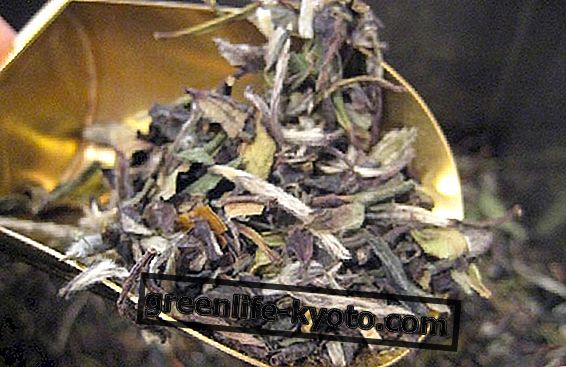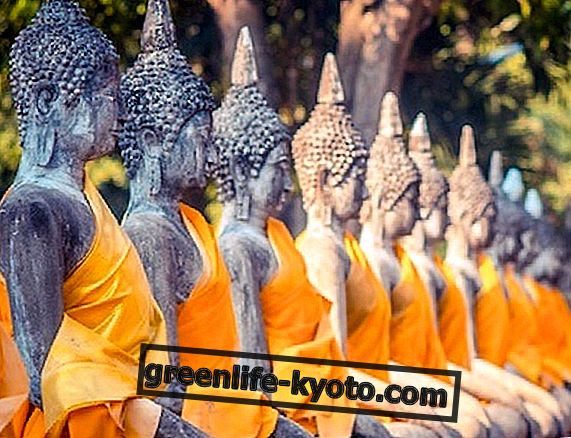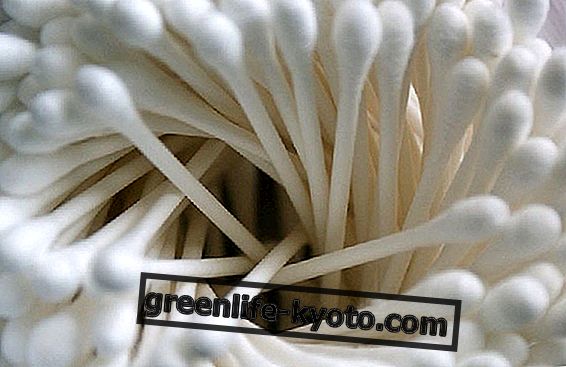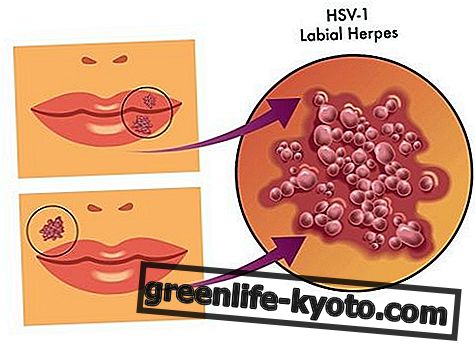
Bach flower remedies, essential oils, officinal plants represent the most effective remedies available in herbal medicine, to deal with the onset of sadness, which cyclically appears with decreasing light and lowering temperatures, during the autumn period .
Herbal remedies for seasonal affective syndrome
Herbal medicine provides effective natural remedies in autumn to treat both physical and psychological symptoms thanks to the use of herbs and medicinal plants, essential oils and Bach flowers, able to rebalance mood and restore energy and vitality.
Adaptogenic plants
Adaptogenic plants increase fatigue resistance, regulate metabolic functions, and improve cognitive abilities .
This category includes ginseng, which acts on the immune, endocrine and nervous systems, improving their functionality, rhodiola rosea, eleuterococco, guarana, damiana and maca from the Andes .
These plants are able to promote the organism's ability to adapt to climatic or seasonal changes and are a valid aid to combat the loss of libido and sexual asthenia in both sexes.
These revitalizing and aphrodisiac properties are due to the presence of stimulating action components on the endocrine glands, especially the adrenal glands, the ovaries and the testicles.
Try also the Ayurvedic remedies for disorders related to the change of season
The griffonia
The seeds of griffonia contain 5-hydroxy-tryptophan (5-HTP), a precursor of serotonin, 'wellness hormone', which in our body is involved in various physiological functions, including mood, sleep and appetite .
By raising serotonin levels, griffonia is able to improve mood, sexuality and sleep quality; promotes pain threshold control; and helps to regularize the sleep-wake cycle, body thermoregulation, appetite, thus eliminating anxiety and depression.
St. John's wort
Hypericum: is considered one of the best remedies for the treatment of anxiety, melancholy, insomnia and nervous restlessness. These properties are mainly attributed to flavonoids, in particular to hypericin, which performs an antidepressant action, in the event of alterations in mood, seasonal depressions, menopausal disorders, states of nervous exhaustion.
Mustard
Mustard: among the bach flowers it is the most suitable flower remedy. The bright yellow of this flower, in the past was seen as a symbol of light, that light that is needed by those who have lost joy and live in sadness and melancholy; to those who manifest a momentary state of painful impotence, periodic and fluctuating crises of depression, sadness, despair and melancholy, due to an unknown, unmotivated cause, without a clear origin and which suddenly arrives (black cloud), remains for days, weeks, or even months, until just as suddenly, disappears, for no apparent reason.
This remedy supports the individual in the autumn: when the light of the world declines, man begins to perceive himself as the bearer of an invisible light, not subject to sunset.
Cinnamon essential oil
Cinnamon essential oil: warms the heart and gives an enveloping sensation of "home", helps in cases of inner coldness, depression, loneliness and fear. Thanks to its invigorating properties it helps against tiredness and fatigue, because it accelerates breathing and heart rate.
Rosemary essential oil
Rosemary essential oil stimulates the adrenal cortex in case of low pressure, weakness and tiredness, even mental. It is an excellent nerve tonic that activates the memory, calms the nerves and stimulates the heart.
melatonin
Melatonin is a hormone produced by the pineal gland; it is not a sleeping pill , but a regularizer of the circadian cycle (sleep / wake cycle).
Thanks to its central action on the synchronization of hormonal cycles, this natural substance reconstitutes a physiological rest regime; that is, it contributes to solving insomnia, recreating the natural periodicity of sleep .
Find out how to use the essential oils of autumn
What is autumn melancholy
The " Seasonal Affective Syndrome " (SAD, from the English Seasonal Affective Disorder ) represents one of the so-called meteoropathic syndromes, characterized by a set of negative symptoms, both on a psychological and physiological level, linked to the variation of meteorological conditions in the short span time, and that follow the cyclical trend of the seasons .
Thus the link between autumn and melancholy is not just a romantic object celebrated by art, but also corresponds to a statistical fact that involves scientific research. In fact, to the increase of darkness and cold, in Europe, above all in the countries of the North, about 12 million people experience a series of symptoms such as sadness, tiredness, apathy, sleep or appetite disorders .
In fact, the mood seems to diminish the further one moves away from the equator: this is confirmed by the fact that Seasonal Affective Syndrome is more widespread in countries where the annual quantity of sunlight is lower and where it is colder (for example Canada, Iceland, Northern United States, Scandinavian countries, etc.).
Often in most cases the symptomatology is not so severe as to require a pharmacological intervention and simple herbal remedies, in autumn can help alleviate melancholy and exhaustion.
Seasonal affective syndrome: causes and symptoms
Seasonal Affective Syndrome is a type of depression, which tends to manifest itself cyclically during the year: it usually begins during the fall season with late spring remission.
According to scientific studies the onset of this disorder is due to changes in exposure to sunlight that affect the endocrine system . Our body receives the full range of radiation, through the skin and eyes. The light waves and, which penetrate through the retina, are transformed into electrical impulses and transmitted through the optic nerve to the brain.
When the impulses reach the hypothalamus we are witnessing an increase in serotonin, a neurotransmitter responsible, among other things, for controlling mood; while at the level of the epiphysis they inhibit the production of melatonin, a hormone sensitive to the light-dark cycle. The excess of melatonin due to a lower presence of light can disable the biological clock (sleep / wake cycle), helping to determine the symptoms of SAD
In addition to melancholy, sadness and depression, the other symptoms are generally guilt and inadequacy, indecision and lack of interest in daily activities, fatigue . In some cases there is an increase in the desire for sleep and food; in others, Seasonal Affective Syndrome may, on the contrary, lead to a decrease in appetite (loss of appetite) and insomnia, as well as anxiety, mood swings, susceptibility and loss of sexual desire .













